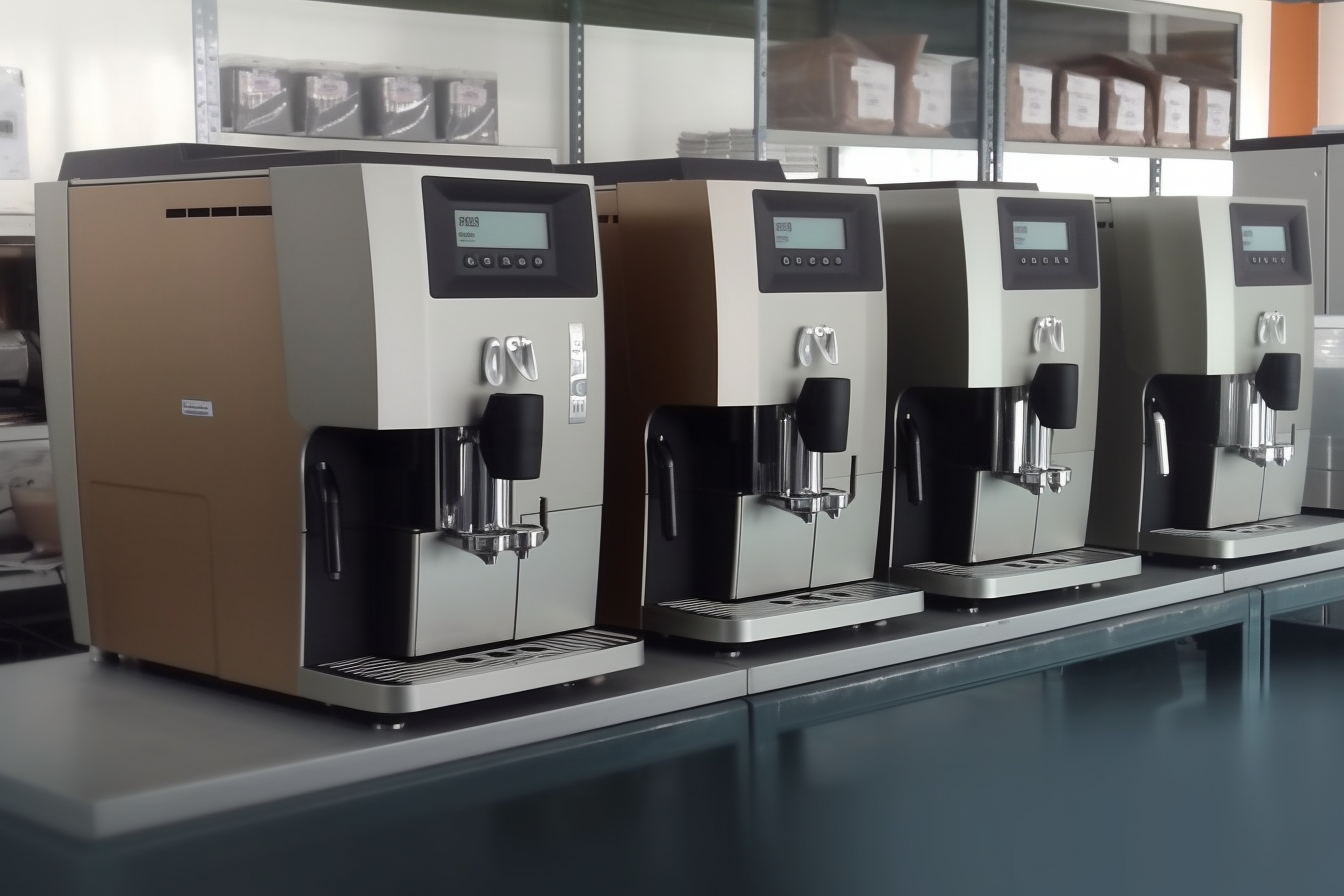Starting an Automated Retail Venture: A Complete Guide
Vending machines provide a convenient way to access snacks, beverages, and everyday essentials in public spaces or workplaces. Learning about the variety of machines and what they include can help you make practical choices that suit different settings and preferences.

The automated retail industry has evolved significantly over the past decade, expanding beyond traditional snacks and beverages to include healthier options, electronics, and even specialized products. For entrepreneurs exploring business opportunities, coin-operated machines present a unique model that combines automation with consistent demand. Success in this field requires careful planning, strategic location selection, and ongoing attention to machine maintenance and inventory management.
What Are the Key Vending Machine Business Opportunities?
Vending machine business opportunities span multiple niches and operational models. Traditional snack and beverage machines remain popular, but emerging trends include healthy vending options featuring organic snacks, fresh food machines in office buildings, and specialized vending for items like personal protective equipment or electronics. Some entrepreneurs choose to start with a single machine to test the market, while others invest in multiple units across various locations. The business model can be structured as full ownership, where you purchase and maintain machines independently, or through franchise arrangements with established vending companies. Location partnerships are critical, as high-traffic areas like office complexes, schools, hospitals, and transportation hubs typically generate the most revenue. Many successful operators diversify their machine types and locations to minimize risk and maximize income potential.
How Do Vending Machine Maintenance Services Work?
Vending machine maintenance services are essential for keeping equipment operational and profitable. Regular maintenance includes cleaning, restocking inventory, collecting cash, troubleshooting technical issues, and ensuring compliance with health and safety regulations. Some operators handle maintenance themselves, particularly when starting with just a few machines, while others contract with professional maintenance services as their operations scale. Maintenance frequency depends on machine location and usage, with high-traffic locations requiring more frequent attention. Professional maintenance services typically offer packages that include routine inspections, emergency repairs, and preventive care to extend equipment lifespan. Common maintenance tasks include checking refrigeration systems, replacing worn parts, updating payment systems, and addressing software issues in modern smart vending machines. Establishing a consistent maintenance schedule helps prevent downtime, which directly impacts revenue. Many operators use route optimization software to efficiently manage multiple machine locations and schedule maintenance visits strategically.
Where Can You Find Commercial Vending Machine Suppliers?
Commercial vending machine suppliers provide the equipment foundation for your operations. The market includes both new and refurbished machine options from various manufacturers and distributors. Major suppliers offer different machine types, including combo snack and beverage units, cold food machines, hot beverage dispensers, and specialized equipment for specific products. When selecting a supplier, consider factors such as machine reliability, warranty coverage, payment system compatibility, energy efficiency, and after-sales support.
| Supplier Type | Machine Options | Key Features | Cost Estimation |
|---|---|---|---|
| National Distributors | New combo units, beverage machines, snack machines | Full warranty, financing options, installation support | $3,000 - $10,000 per unit |
| Regional Suppliers | New and refurbished equipment | Local service, personalized support, flexible terms | $2,000 - $8,000 per unit |
| Online Marketplaces | Used and refurbished machines | Lower upfront costs, variety of brands, self-service | $500 - $5,000 per unit |
| Manufacturer Direct | Latest models with smart technology | Advanced features, cashless payment, remote monitoring | $4,000 - $12,000 per unit |
Prices, rates, or cost estimates mentioned in this article are based on the latest available information but may change over time. Independent research is advised before making financial decisions.
Established suppliers like Crane Merchandising Systems, Seaga, and Automatic Products offer comprehensive product lines with varying price points. Some suppliers specialize in eco-friendly machines with energy-saving features, while others focus on smart vending technology with touchscreen interfaces and cashless payment systems. Building relationships with reliable suppliers ensures access to replacement parts, technical support, and potential financing arrangements. Many suppliers also provide training on machine operation and basic maintenance, which can be valuable for new operators.
What Initial Investment Is Required?
Starting in automated retail requires capital for equipment purchase, initial inventory, location fees, and working capital. A single machine can cost anywhere from a few hundred dollars for a basic used unit to several thousand for a new machine with advanced features. Beyond equipment costs, operators must budget for product inventory, which varies based on machine capacity and product selection. Some locations charge placement fees or require revenue sharing arrangements, while others may offer free placement in exchange for providing convenience to their customers. Additional startup costs include licensing, insurance, transportation for restocking and maintenance, and potentially storage space for inventory. Many entrepreneurs start small with one or two machines to learn the operations before scaling up.
How Do You Choose Profitable Locations?
Location selection directly impacts profitability in automated retail. High-traffic areas with limited food service alternatives tend to generate the best returns. Ideal locations include office buildings, manufacturing facilities, schools, hospitals, gyms, hotels, and transportation terminals. When evaluating potential locations, consider foot traffic volume, demographic fit with your product selection, accessibility, security, and competition from other vending machines or food services. Building relationships with property managers and decision-makers is crucial for securing prime locations. Some operators offer incentives like free products or revenue sharing to secure desirable placements. Conducting site visits at different times of day helps assess actual traffic patterns and potential customer base.
What Are Common Challenges and Solutions?
Operators face several common challenges, including machine malfunctions, theft or vandalism, inventory management, and changing consumer preferences. Technical issues can be minimized through regular maintenance and choosing reliable equipment. Security concerns may require investing in machines with robust locking mechanisms or placing units in monitored areas. Inventory management becomes more efficient with tracking systems that monitor sales patterns and alert operators when restocking is needed. Adapting to consumer trends, such as the growing demand for healthier options or cashless payment systems, helps maintain competitiveness. Successful operators stay informed about industry developments, maintain good relationships with location hosts, and continuously evaluate machine performance to optimize their operations.
Automated retail offers entrepreneurs a flexible path to generating income through unattended sales. Success requires careful planning, strategic location selection, reliable equipment, and consistent maintenance. By understanding the various opportunities, working with reputable suppliers, and implementing effective operational practices, operators can build profitable enterprises that serve their communities while generating steady revenue streams.




